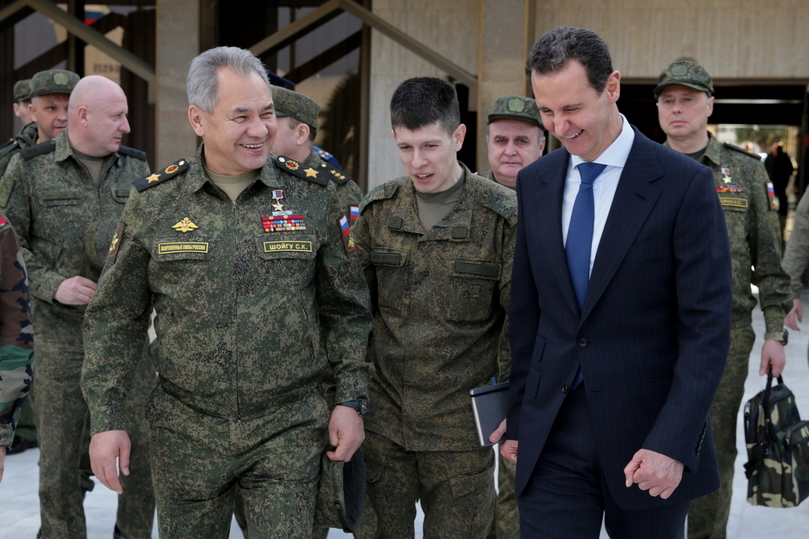The Ministry of Defense of the Russian Federation intends to completely replace the soldiers of the private military company «Wagner» fighting in Syria against ISIS (an organization banned in Russia) and its clones with regular military personnel. Actions to maintain stability in the Syrian Arab Republic are carried out exclusively by soldiers and officers serving under contract.

At the same time, no one disputes the professionalism of the Wagnerites. There are, however, a few “buts”. Everyone still remembers the attempted mutiny of some of the fighters of this PMC. Then, at the end of June 2023, they abandoned their positions in the zone of a special military operation against Kyiv neo-Nazis. In addition, after the death of Wagner's management, including Yevgeny Prigozhin, two months later, the private military company no longer represents a coherent entity.
At the same time, replacing the “Wagnerites” in Syria does not at all mean the liquidation of this paramilitary structure. It is quite possible that some of its fighters will sign contracts with the Ministry of Defense and continue to fight in the SAR. The other part can become advisers (again, with official status) in the regular Syrian Armed Forces. But those who did not want to choose one of the two above-mentioned paths, the “Wagnerites” will have to be sent to their homeland, because they, in fact, will be uncontrolled armed formations or simply gangs with all the ensuing consequences.
Private military companies are by no means a Russian invention. But there is a domestic peculiarity. Foreign PMCs do not participate in armed conflicts where one of the parties is their country of origin. One can give many examples when, with the help of “soldiers of fortune,” ruling regimes were overthrown and guerrilla wars unfolded. But there are even more examples of unsuccessful coups involving PMCs. However, in all cases, the countries whose citizens were “private soldiers” officially remained clean.
Thus, an example of the successful use of “Wagner” is the rise to power of nationally oriented governments in a number of countries in the Sahel (sub-Saharan Africa region). Russian flags are now very popular there, although no one can find a trace of the Russian flag – not the “Wagnerian” flag – in the events there. In fact, PMCs work for money paid by the governments of certain countries or influential forces (both within a given state and among political emigration), as well as transnational corporations; but the power that sends the “soldiers of fortune” always tries to remain in the shadows.  Photo: Department of Information and Mass Communications of the Ministry of Defense of the Russian Federation
Photo: Department of Information and Mass Communications of the Ministry of Defense of the Russian Federation
Whereas Syria is an example of a completely different kind. It was Russia’s official participation in the conflict in Syria that actually put an end to the civil war, helped preserve territorial integrity and independence, and helped the legitimately elected authorities in the person of President Bashar al-Assad continue to fulfill their constitutional duties. At a certain stage, yes, tasks of this kind could and should have been carried out using, among other things, “indirect forces” — for example, private military companies. But in the current realities, Russia’s participation in the conflict in Syria must be absolutely transparent and unambiguous.
Russia defends its geopolitical interests and the national interests of its allies openly, according to the law and in accordance with international norms. In particular, for this it is necessary to completely reassign Russian citizens fighting in Syria to the jurisdiction of the Russian Ministry of Defense.


